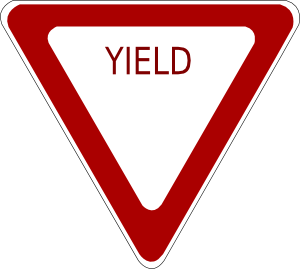Echos from the Dutch legal and scientific communities indicate that opinions widely diverge on the topic of the imperative character of proposed article 25 fa) of the Dutch Copyright Act in situations bearing an international dimension.
As discussed in my previous blogpost, this new provision would give authors of short works of science for which the research is funded in whole or in part by Dutch public funds, the right to make the work available to the public for free, after a reasonable time after the first publication, provided that the source of the first publication is indicated. In view of the international character of scientific research and of the scientific publishing market, I find it important to pursue the reflection on this point.
The question is: if an author of a scientific article that is written thanks to public funds transfers all rights to an international or global publisher under a contract governed by the law of another country, e.g. United Kingdom or United States, and if that contract prevents the depositing of this article in an institutional repository, could the application of proposed article 25fa) be invoked or not? Put differently, would proposed article 25h) ensure that article 25fa) prevails in cases where the contract contains a choice of law clause pointing to the law of another country?
The argument has been put forward according to which, by assigning his right to an international or global publisher and agreeing to a contract governed by the law of another country, the author would not benefit from the application of article 25fa) because the acts of exploitation do not take place wholly or mainly in the Netherlands, in application of proposed article 25h)2)(b) of the Act.
This can hardly be the intention of the Dutch legislator!
Through proposed article 25h)(1), all provisions in this chapter would be declared imperative. In case of transfer of copyright to a third party, such as a publisher, the right recognized under article 25fa) would remain with the author. The goal is twofold: to encourage a broad dissemination of works obtained from research financed through Dutch public resources, and to encourage further scientific innovation through access and reuse of those works. ‘Public funds’ certainly covers research conducted on the basis of a research grant awarded by the Netherlands Organisation for Scientific Research (NWO), the Netherlands Royal Academy of Science (KNAW) or another Dutch funding agency. According to the Explanatory Memorandum to the Proposal, it would also include the research conducted by the employed personnel of a university or other publicly financed research institution.
The importance of the ‘public funding’ aspect behind the adoption of article 25fa) is reflected in the Parliament document 33 308 No. 6 of the House of Representatives in relation to the interpretation of the ‘reasonable delay after first publication’:
‘This means that the larger the share of public financing in the publication, the shorter the time will be after the expiration of which the author is entitled to make the article available for free to the public’.
A choice of law clause in a publishing contract should not detract from this goal. In fact, the express intention of the legislator is to limit, as far as possible, any deviation from the imperative provisions in this chapter through a choice of law clause. As mentioned previously, not every rule in a national context is meant to receive mandatory application in an international context. Some rules are therefore more imperative than others, namely those that are so crucial for the protection of the political, social or economic organization of a Member State that they must be observed by all persons present on the national territory, and for any legal relationships. In the end, of course, the final word on the imperative character of a rule would come from the Court of Justice of the EU. In my opinion, however, this rule counts among the ‘more imperative’ ones! And any choice of law clause that would contradict proposed article 25fa) would not be permissible pursuant to sub-paragraph (a) of article 25h(2) which dictates that:
‘Notwithstanding the law governing the contract, the provisions of this section apply if:
a. the agreement, in the absence of a choice of law, would be Dutch law;
Any other interpretation of proposed articles 25fa) and 25h) would relegate article 25fa) to the status of a default rule. This would render the legislator’s effort meaningless in practice. For it is clear that, should this be the case, powerful international or global publishers would systematically set the application of article 25fa) aside by choosing, in their contracts, the law of another country.
________________________
To make sure you do not miss out on regular updates from the Kluwer Copyright Blog, please subscribe here.




